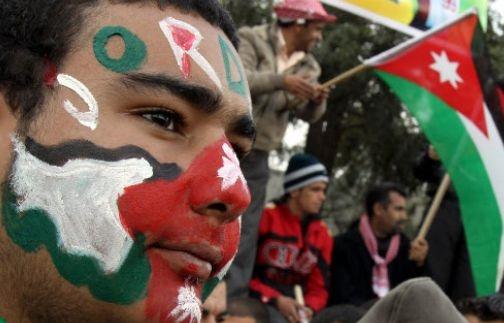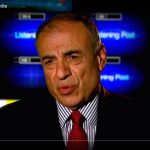AFP photo
By
Nehad Ismail
Jordan has survived some tough times in the last five years. It has stoically endured the stresses and strains of regional upheavals and wars despite the opinion of a number of prominent commentators who warned that the country might easily be swept away in the wake of the Arab Spring.
The Washington-based Atlantic magazine ran a story in July 2013 titled ‘In Jordan the Arab Spring Isn’t Over’, in which it noted: “Jordanians look north to Syria and southwest to Egypt and are frightened by what they see. Brutal civil wars and street clashes have tempered the desire for rapid change”.
However, more than four years later, Jordan remains a haven of stability and common sense in a region that has experienced more than its fair share of chaos and madness.
Despite the influx of more than 700,000 Syrian refugees, rising energy costs, and internal unrest instigated by the opportunist Muslim Brotherhood, the country has – it would appear – skilfully managed its way through the turbulence experienced in some surrounding states.
The Kingdom, a staunch ally of the West, has for decades been a target of radical violent Islamists such as Al-Qaeda and ISIS, but also possibly of the Assad regime in Syria. In 2005, Al-Qaeda in Iraq claimed responsibility for suicide bombings in three Amman hotels which killed a total of 60 people and wounded dozens more, an incident that was dubbed “Jordan’s 9/11”.
In March this year Jordanian counter-terrorism forces raided an ISIS/Daesh cell at a Palestinian camp in the northern town of Irbid, killing eight militants allegedly planning attacks against civilian and military targets.
In June a General Intelligence outpost in Baqa’a Palestinian refugee camp north of Amman, was attacked. A suspect believed to be linked to Daesh was arrested. In targeting the General Intelligence Department the terrorists hoped to promote the message that Jordan is not safe.
Officials in Amman confirmed that a further 14 people were killed and others seriously injured when an explosives-laden truck was detonated at an army post near Rukban, on the isolated desert border with Syria. King Abdullah vowed to hit back “with an iron fist” and Jordan subsequently closed the border with Syria, although who actually orchestrated the attack remains unclear.
As part of the anti-Daesh coalition Jordan has become a target for terrorist operations. Amman began intensifying a campaign of airstrikes against Daesh in Syria when one of its pilots was captured by the organisation in December 2014 and burned alive.
But Daesh has so far failed to wreak the same levels of havoc in Jordan, involving huge numbers of dead and wounded, as it has managed to achieve, and continues to achieve, in Iraq and Syria, or with its ongoing military attacks in Turkey, Lebanon, Egypt and Libya.
The most simple explanation for Daesh’s failure in Jordan is that the country has no appreciable base of terrorist collaborators and there is no collusion and no deals between the Jordanian military and security apparatus and Daesh, which is not the case elsewhere.
However, Jordan remains a prime target of Syrian plots. According to documents seen by Al-Arabiya as far back as 2012, President Assad and his allies sought to destabilise Jordan by manipulating peaceful demonstrations into violent protests, according to leaked files obtained by Al Arabiya. A Syrian security order asked for assistance from groups inside Jordan that are “primarily” against the Jordan’s ruling King Abdullah and the royal family. The files allegedly revealed that the Syrian regime, joined by Russia and Iran, is involved in arming Jordanian anti-government activists in order to “ease the pressure on the Syrian government” and to export the crisis in Syria to the Jordanian kingdom. Al Arabiya claims to that have authenticated hundreds of these documents before selecting to disclose the ones with substantial news value and/or political relevance.
To date Syrian schemes to destabilise Jordan have failed, largely thanks to the vigilance of the security forces and popular support for the monarchy. King Abdullah has succeeded in navigating a path through crises and plots as did his father, the late King Hussein, before him. However, the very fact that for many years Jordan has been viewed as a pillar of stability and reason in the middle of the world’s most turbulent region, puts it at increased risk from those who would wish it harm.



No Comments Yet!
You can be first to comment this post!